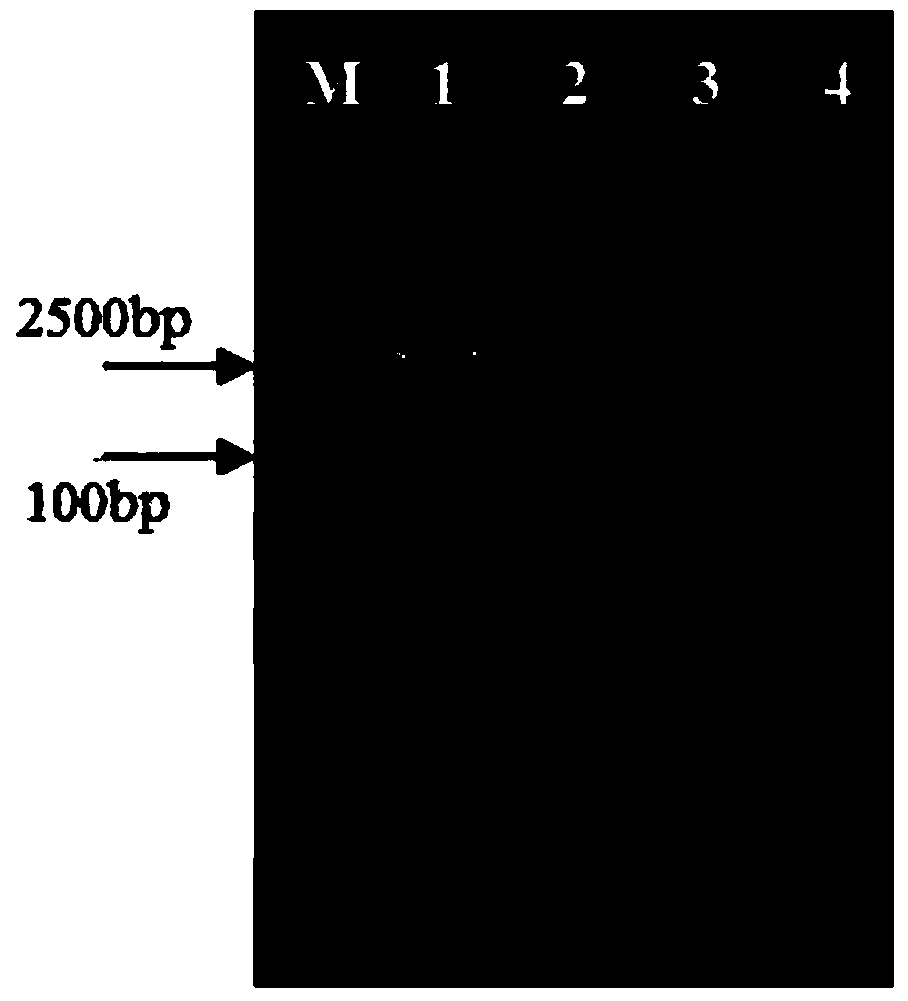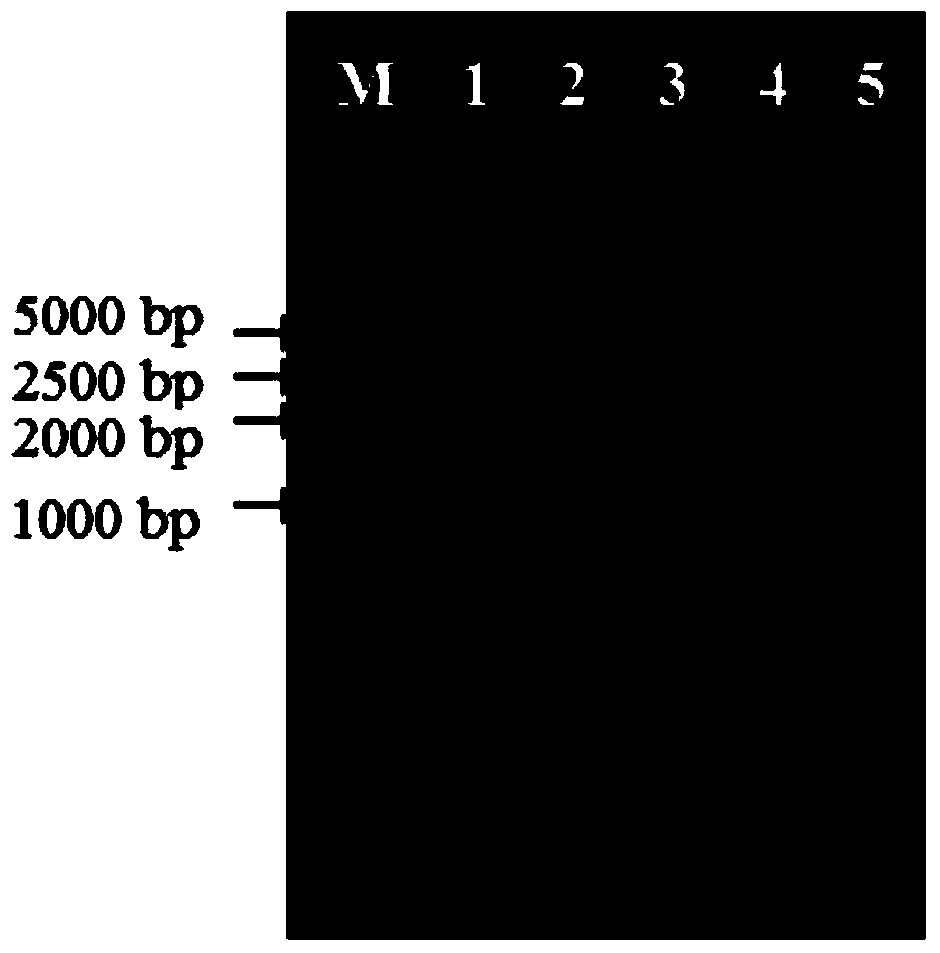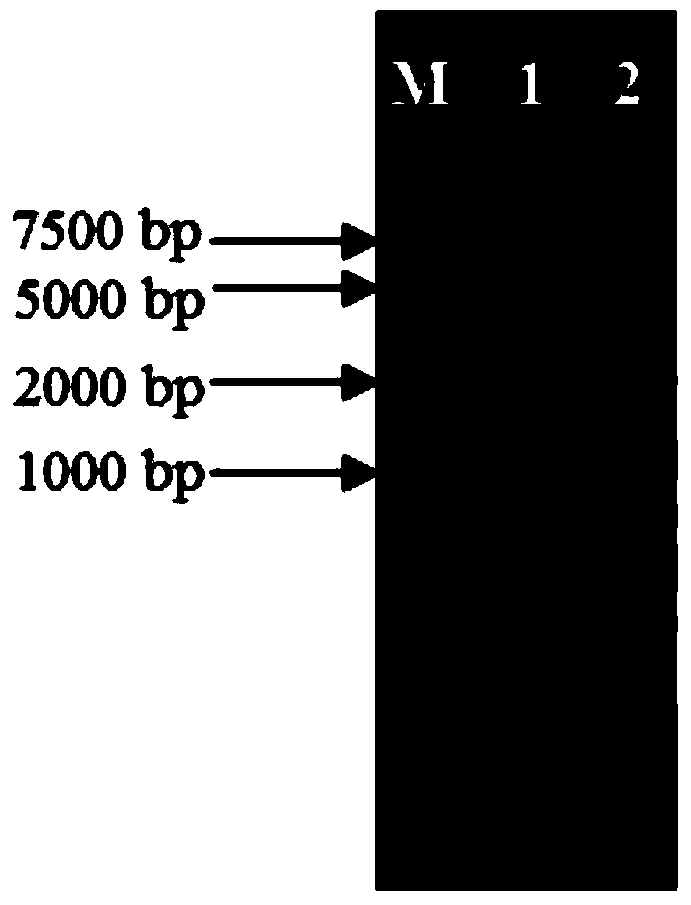prcK gene knocked-out suicide plasmid pYTKLKRT and construction method thereof
A suicide plasmid and a construction method technology, applied in the field of suicide plasmid and its construction, can solve the problems of low success rate, cumbersome construction steps, short length of homologous fragments, etc., achieve high success rate, avoid wrong gene replacement, and few construction steps Effect
- Summary
- Abstract
- Description
- Claims
- Application Information
AI Technical Summary
Problems solved by technology
Method used
Image
Examples
specific Embodiment approach 1
[0026] Embodiment 1: The suicide plasmid pYTKLKRT for knocking out the prcK gene in this embodiment is composed of prcKL, a fragment on the left side of the prcK gene, prcKR, a fragment on the right side of the prcK gene, a tetracycline resistance gene, and plasmid pUC18; the nucleic acid sequence of the fragment prcKL is as shown in SEQ ID NO: 1; the nucleic acid sequence of the fragment prcKR is shown in SEQ ID NO:2.
specific Embodiment approach 2
[0027] Specific embodiment two: The suicide plasmid pYTKLKRT knocking out the prcK gene in this embodiment is constructed according to the following steps:
[0028] 1. Use L.paracasei HD1.7 genomic DNA as a template to PCR amplify the left fragment prcKL of the prcK gene, the upstream primer of the amplified fragment prcKL is prcKL-up, and the nucleotide sequence of prcKL-up is 5'-CCG GAGCTC TACCTTAATGATTTAGATGCGAGCG-3', the downstream primer of the amplified fragment prcKL is prcKL-down, and the nucleotide sequence of prcKL-down is 5'-GTC GGTACC GATTGTTCCTTCGGTGTGGATGTGT-3', the reaction system of the PCR amplified fragment prcKL is 50 μL by 10 μL containing Mg 2+ 5×PrimeSTAR Buffer, 4μL of dNTP Mixture with a concentration of 2.5mmol / L, 10μL of L.paracasei HD1.7 genomic DNA with a concentration of 25ng / μL, 10μL of prcKL-up with a concentration of 1pmol / μL, 10μL of a concentration of 1pmol / μL µL of prcKL-down, 0.5 µL of PrimeSTAR HS DNA polymerase at a concentration of 2.5 ...
specific Embodiment approach 3
[0038] Specific embodiment three: the difference between this embodiment and specific embodiment two is: in step two, the enzyme digestion reaction system of plasmid pUC18 is 20 μL consisting of 1 μL of Sac I with a concentration of 10 U / μL, 1 μL of Kpn I with a concentration of 10 U / μL, 2 μL 10×Buffer Tango, 7 μL plasmid pUC18 with a concentration of 80 ng / μL and 9 μL sterile ddH 2 O composition; digest at 37°C for 2 h at constant temperature, and use enzyme gel to recover the digested fragments. Other steps and parameters are the same as in the second embodiment.
PUM
 Login to View More
Login to View More Abstract
Description
Claims
Application Information
 Login to View More
Login to View More - R&D
- Intellectual Property
- Life Sciences
- Materials
- Tech Scout
- Unparalleled Data Quality
- Higher Quality Content
- 60% Fewer Hallucinations
Browse by: Latest US Patents, China's latest patents, Technical Efficacy Thesaurus, Application Domain, Technology Topic, Popular Technical Reports.
© 2025 PatSnap. All rights reserved.Legal|Privacy policy|Modern Slavery Act Transparency Statement|Sitemap|About US| Contact US: help@patsnap.com



